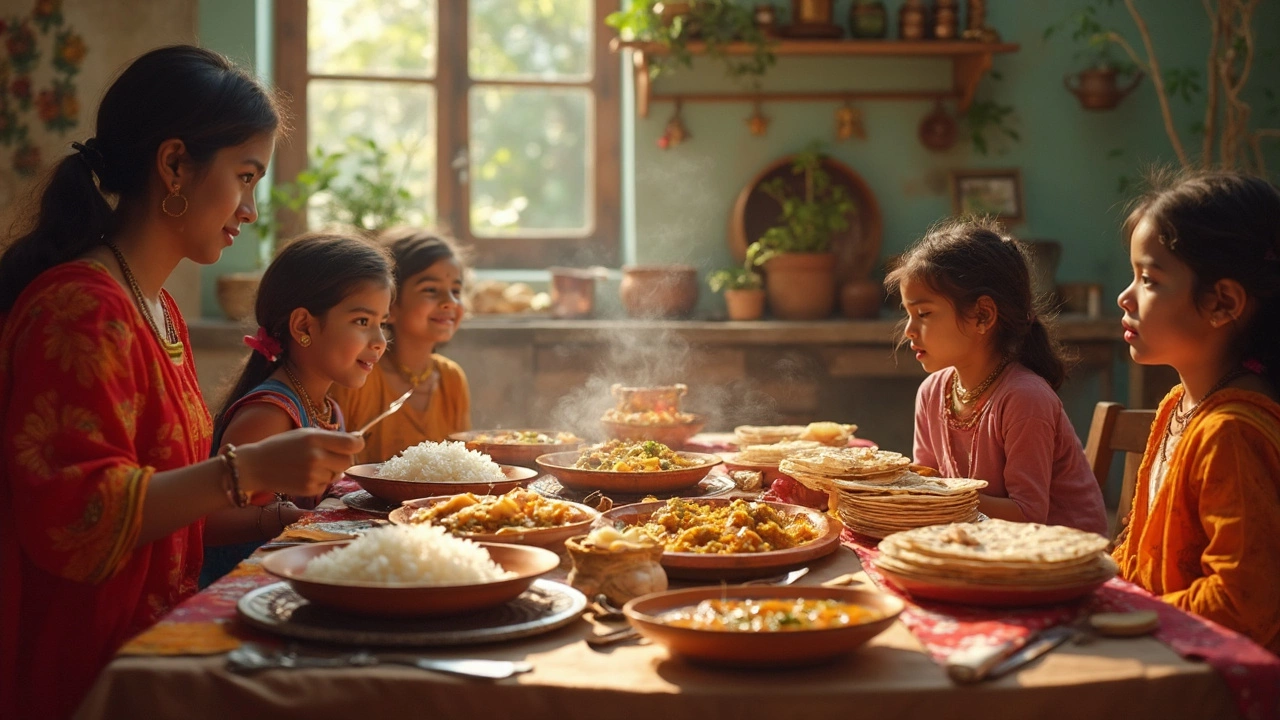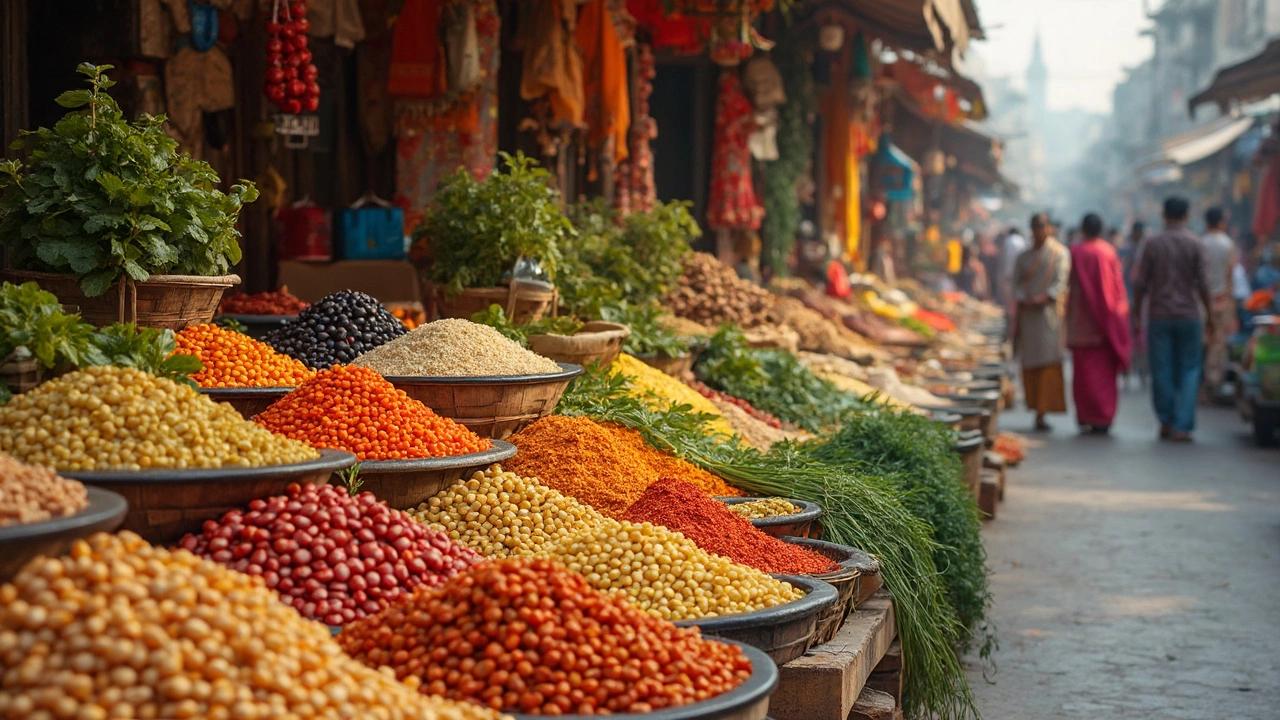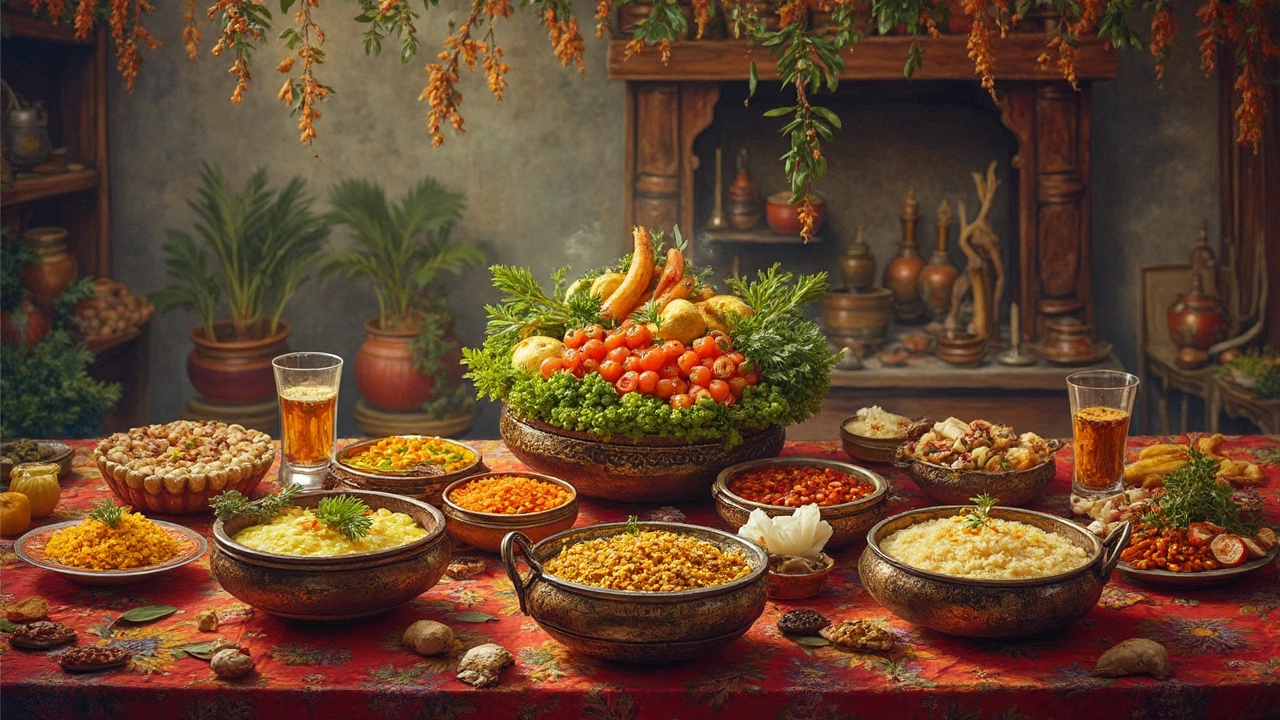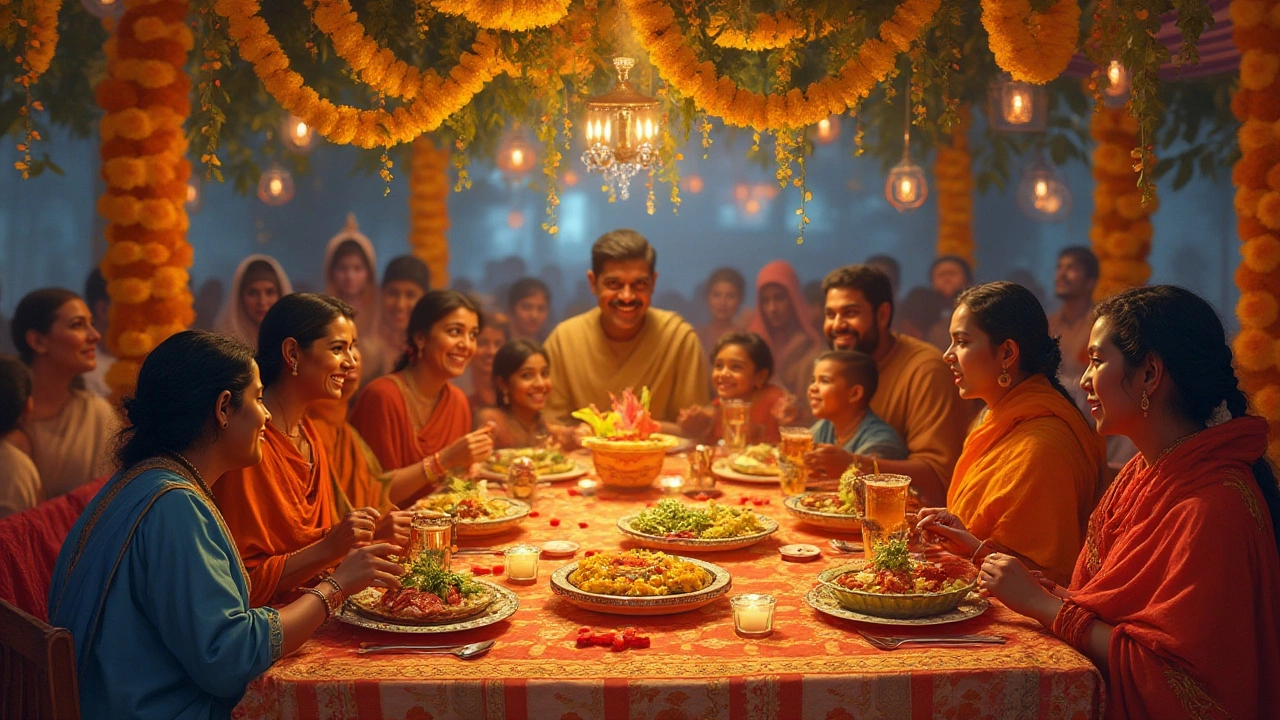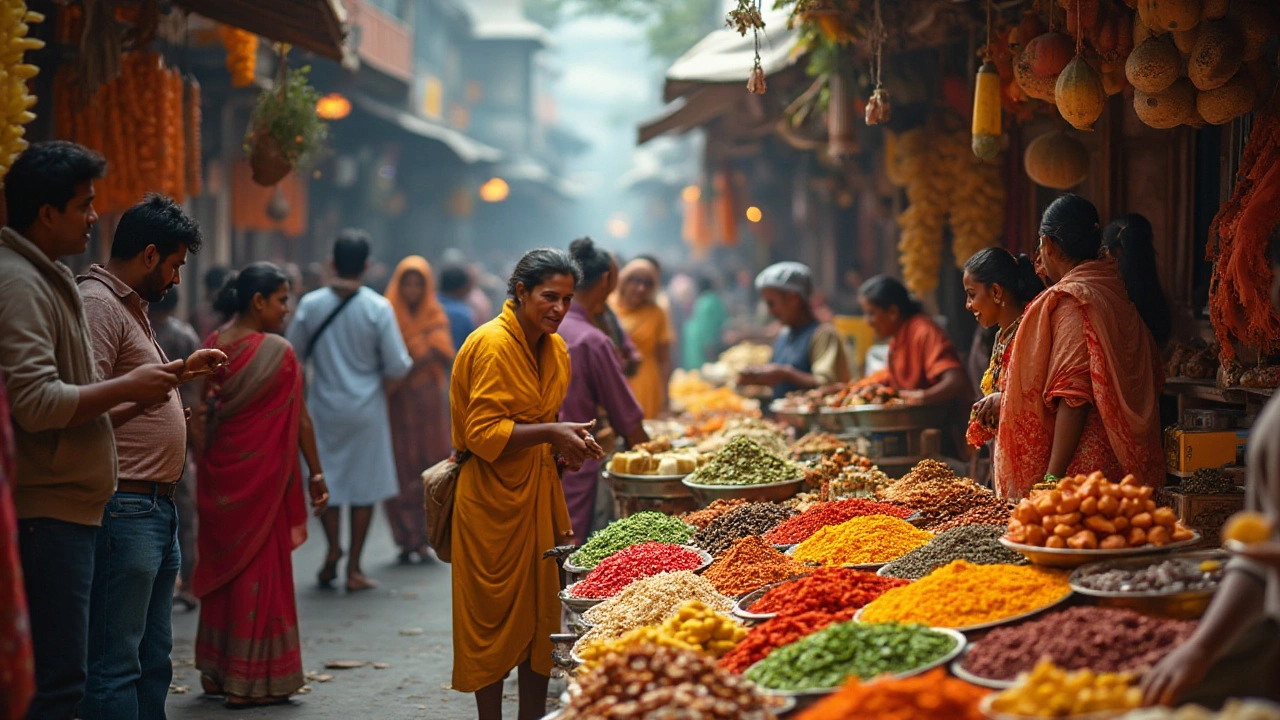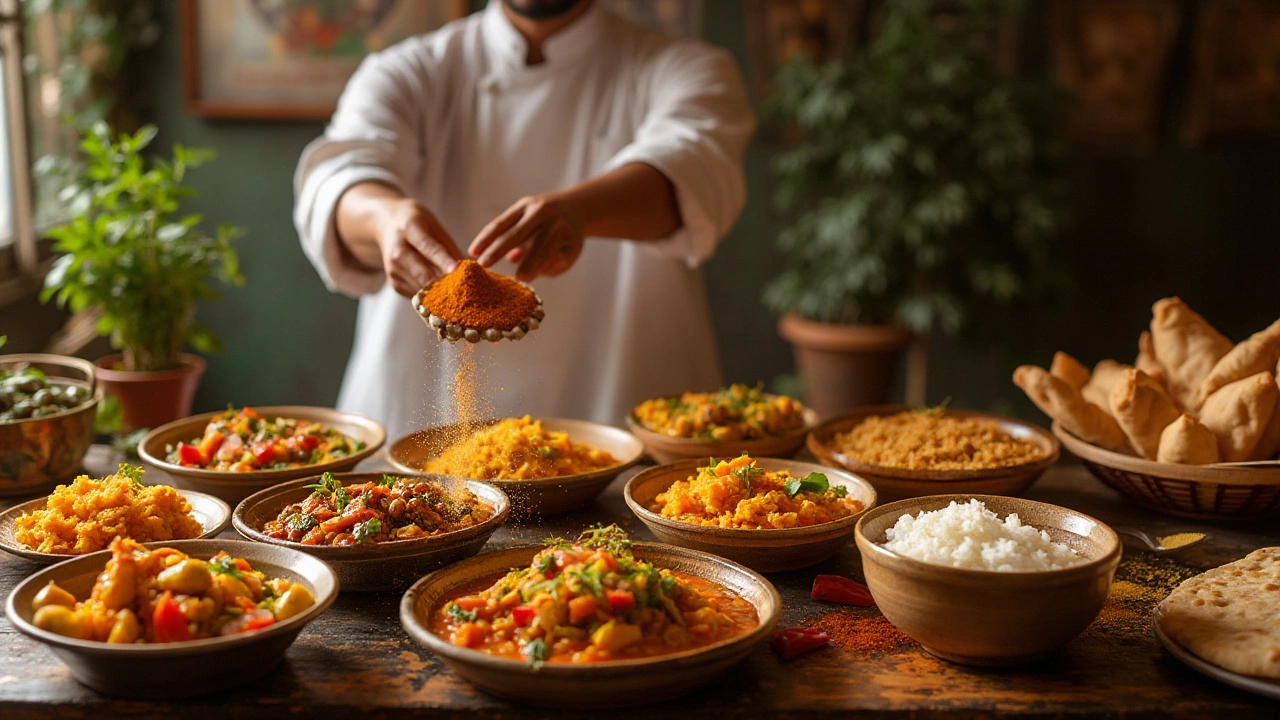Vegetarian Indian Recipes: Easy, Delicious, Healthy
If you love Indian food but want to keep it plant‑based, you’re in the right spot. This page pulls together the best vegetarian Indian dishes, from comfort‑food staples to light, nutrient‑rich plates. Whether you’re cooking for yourself, family, or friends, you’ll find simple ideas that pack flavor without meat.
Why Vegetarian Indian Food Rocks
Indian cuisine grew around vegetables, lentils, rice, and spices, so going vegetarian isn’t a compromise – it’s the original plan. Beans and pulses give you protein, while spices like turmeric, cumin, and mustard seed add antioxidants. That means you get a meal that fills you up, fuels your body, and tastes amazing.
Many people wonder if a national Indian dish exists. The truth is, the country’s everyday meals center on dal, rice, and aloo – all vegetarian by default. Those dishes show how veg food can be both simple and iconic.
Feeling hungry for something really filling? Look to dishes that combine grains and legumes, like rajma‑chawal (kidney beans with rice) or masoor dal with steamed millet. The combo of protein and complex carbs keeps you satisfied for hours.
Start Cooking with Simple Staples
Grab a few pantry basics and you can whip up dozens of recipes. Here’s a quick starter list:
- Red lentils (masoor dal) – cooks in 15 minutes, perfect for soups or thick dals.
- Chickpeas – great for chana masala or tossed into salads.
- Rice or millets – base for biryanis, pulaos, or simple curd rice.
- Fresh vegetables – tomatoes, onions, spinach, cauliflower, and okra are everyday heroes.
- Spice mix – turmeric, cumin, coriander, mustard seeds, and dried red chilies give you that classic punch.
Start with a one‑pot dal. Saute onions, garlic, and mustard seeds in a little oil, add chopped tomatoes, then stir in washed lentils and water. Bring to a boil, simmer, and finish with a dash of garam masala. Serve with rice or roti, and you have a complete meal in under 30 minutes.
Eggs often spark debate in Indian vegetarian circles. Most traditional vegetarians skip eggs, following religious or cultural guidelines. If you’re okay with eggs, try a simple egg‑less bhurji using crumbled tofu – it mimics the texture and soaks up spice just the same.
Health‑wise, vegetarian Indian cooking shines. The use of fresh vegetables, whole grains, and spice‑based seasoning means lower saturated fat and more fiber. Studies show that regular consumption of turmeric and ginger can lower inflammation, while lentils support steady blood sugar.
Looking beyond India? Countries with low meat consumption love Indian vegetarian dishes for their flavor and nutrition. Pair a spicy sambar with a side of idli, and you’ve got a globally loved breakfast.
Finally, remember that food is also a cultural story. Hindu, Jain, and Buddhist traditions often emphasize vegetarian meals as an act of respect for life. When you cook these dishes, you’re joining a centuries‑old practice that blends taste, health, and spirituality.
Ready to experiment? Pick one recipe from the list below, gather the ingredients, and give it a try. You’ll quickly see why vegetarian Indian food stays at the heart of Indian households – it’s comforting, adaptable, and always full of flavor.
What is India's National Dish? The Truth About Vegetarian Indian Dishes
Is there really a national dish of India? A closer look reveals surprising facts behind the hype. This article unpacks what people think is India's national dish, why it's all vegetarian by default, and how food connects across the country's regions. Explore how everyday veggies like dal, rice, and aloo dominate the table, and get handy tips on trying these dishes at home. Forget the clichés—here's what Indian food really looks like at mealtime.
What's the Most Filling Vegetarian Food?
Dive into the world of Indian vegetarian food to discover some of the most filling and satisfying plant-based meals. We'll explore why these dishes are not only hearty but packed with flavors that keep you coming back for more. Whether you're a lifelong vegetarian or just looking for new meals to try, learn which ingredients keep you full and satisfied. From beans to grains, get nifty tips on how to make the most out of your diet without missing meat. Let's make meal planning exciting and filling!
Do Indian Vegetarians Eat Eggs? Unraveling the Mystery
Eggs are a common point of curiosity when it comes to the vegetarian diets of Indian people. While vegetarians in the West might include eggs, Indian vegetarians often follow different unwritten rules. Understanding the diverse cultural and religious influences can clarify the stance on eggs, and exploring regional delicacies can unveil a rich tapestry of eggless yet delicious dishes. Let's dig into why eggs are often left out and what alternatives are embraced instead.
Vegetarian Traditions in Indian Cultures
Explore the rich tapestry of Indian cultures known for their vegetarian traditions. From different religious practices to diverse regional preferences, discover what drives vegetarianism across India. Learn about the tasty dishes each culture offers and find tips on how to enjoy these culinary delights. Delve into the history and unique features of vegetarian communities in India. Ideal for those curious about the blend of culture and cuisine.
Exploring Vegetarianism in Indian Spiritual Practices
Certain religions, mainly originating from India, embrace a predominantly vegetarian lifestyle, deeply rooted in their spiritual teachings and practices. Hinduism, Jainism, and Buddhism are renowned for their encouragement of a vegetarian diet, which aligns with principles of non-violence and respect for all living beings. This article delves into the traditions and beliefs of these religions and how they influence dietary choices among their followers. Discover how these spiritual paths shape not only food habits but also cultural and ethical landscapes.
Countries with the Lowest Meat Consumption and Delicious Vegetarian Indian Dishes
Exploring plant-based diets across the globe often leads us to the same curious question: Which country eats the least meat? This article delves into some of the least meat-consuming nations, focusing particularly on their rich culinary traditions that make vegetarianism not just a diet, but a way of life. Perfectly aligning with this theme are traditional Indian dishes, known for their flavorful vegetarian recipes that cater to both the tastebuds and health. Discover interesting facts about these countries and collect tips on how to enjoy their wonderful vegetarian offerings. Let's uncover delicious and wholesome vegetarian meals from around the world.
Exploring the Health Benefits of Indian Vegetarian Cuisine
Indian vegetarian food offers a wide array of delicious and nutrient-rich options that are gaining popularity worldwide. The healthiness of these dishes largely stems from their use of fresh vegetables, whole grains, and a variety of spices, which not only enhance flavor but also provide numerous health benefits. Understanding the nutritional components and cooking methods used in Indian vegetarian cuisine can shed light on how these dishes can be both tasty and good for you. Learn about how traditional Indian meals balance nutrition and flavor, making them an excellent choice for anyone seeking a healthy diet.
